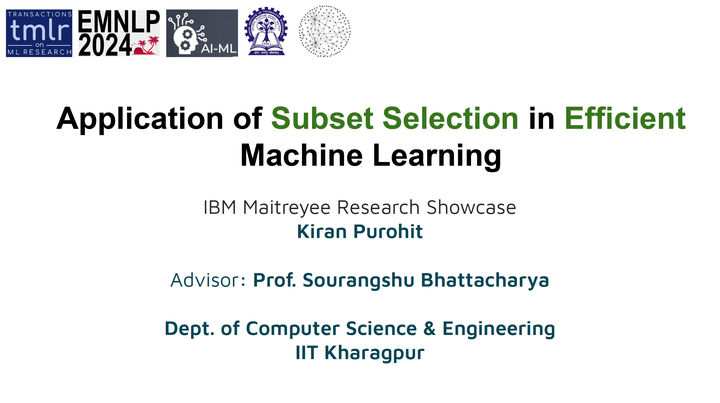Application of Subset Selection in Efficient Machine Learning @IBM Maitreyee Research Showcase 2024

Abstract
Deep convolutional neural networks (CNNs) have achieved impressive performance in many computer vision tasks. However, their large model sizes require heavy computational resources, making pruning redundant filters from existing pre-trained CNNs an essential task in developing efficient models for resource-constrained devices. Whole-network filter pruning algorithms prune varying fractions of filters from each layer, hence providing greater flexibility. State-of-the-art whole-network pruning methods are either computationally expensive due to the need to calculate the loss for each pruned filter using a training dataset, or use various heuristic / learned criteria for determining the pruning fractions for each layer. We propose a simple and efficient technique for whole-network pruning. Answering reasoning-based complex questions over text and hybrid sources, including tables, is a challenging task. Recent advances in large language models (LLMs) have enabled in-context learning (ICL), allowing LLMs to acquire proficiency in a specific task using only a few demonstration samples (exemplars). A critical challenge in ICL is the selection of optimal exemplars, which can be either task-specific (static) or test-example-specific (dynamic). Static exemplars provide faster inference times and increased robustness across a distribution of test examples. In this paper, we propose an algorithm for static exemplar subset selection for complex reasoning tasks. We introduce a novel exploration method designed to estimate the parameters of the scoring function, which evaluates exemplar subsets without incorporating confidence information.